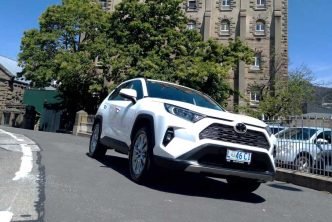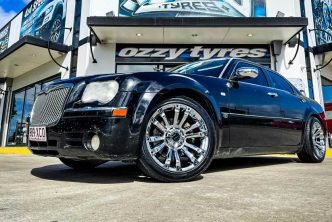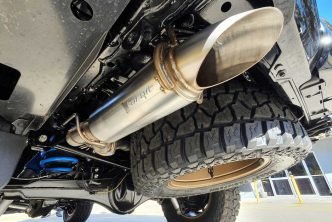It’s undeniable that owning a car has become a necessity for daily life. 77% of Americans agree with this, but the process of buying a car remains a hectic and overwhelming endeavor. Many have to compare models and prices and meet various sellers before settling on a vehicle.
For a more streamlined process, ensure you come with all the necessary documents. This article covers what to bring when buying a car. Read on to learn more.
Table of Contents
Personal Identification
Like other big purchases, the first document you need when buying a car is proof of your identity. The credit union, car dealerships, and private sellers need it to ensure you are a credible person. Having a valid ID on hand can speed up the paperwork process.
You can bring your state ID, passport, or valid driver’s license. Experts recommend bringing at least two forms of identification. It is best to bring every valid proof of identification you have with you to avoid delays and other issues.
Credit Information
How do you plan on paying for your new vehicle? Based on a report, over 100 million individuals have an auto loan. If you’re planning on financing your car, check your credit situation first.
Before approval, the bank or credit union reviews your credit history. A good credit score exhibits financial responsibility, proving you can manage your debt. As a result, it instills confidence in them.
Creditors often reward clients with high credit scores with low interest rates.
Apart from the bank or credit union, the seller needs to know your credit situation. This allows them to determine the credit terms. Moreover, it provides valuable insights into your financial standing.
With this, you must bring your credit report when buying a car.
Proof of Income
Before you can buy a car and close the deal, you must show proof of income. This document shows the seller or creditor that you can meet the monthly payments.
You must prove to the bank or credit union that you can pay them back on time. In some cases, creditors contact a client’s employer to verify their income. To prove you have a stable income, bring your employment verification, tax returns, or pay stubs.
Driver’s License
One of the car documents you must bring in buying a vehicle is your driver’s license. Apart from using it as a form of identification, you need it to test drive the car. Test drives are essential when buying a car, as they enable you to determine if the car will be a good fit for you.
Ensure that you have a valid driver’s license to streamline the registration process. Most dealerships make a copy of your driver’s license for their records and use it to notify the Department of Motor Vehicles of the sale.
Proof of Insurance
In most states, you need auto insurance before you can drive a vehicle. It is crucial when buying a car as it provides financial protection against unforeseen events.
If you have an existing car insurance policy, you can use it as your proof. However, it is best to contact your agent first to update your coverage. Apart from this, your insurer can get you the documents you need at the dealership.
Need to update your insurance?
Determine the vehicle you want to acquire. Send the vehicle make, model, odometer reading, and vehicle identification number to your insurer. Wait for their confirmation about the update.
If you have no idea what vehicle to buy, visit Cardinale Mazda. The dealership can help you choose from used vs new cars.
Proof of Address
Having the necessary documentation, including your proof of address, is essential to close the deal. But why do credit unions, car dealerships, and private sellers need to verify your address?
In most cases, they use your verified current address for documentation. This ensures they hold accurate information for vehicle registration, legal, and taxation purposes. Your proof of address establishes your location for official records.
With this, bring a document that serves as proof of your address when buying a car. You can use a recent bank statement, a lease agreement, or utility bills. Prepare an official document to avoid issues or delays at the dealership.
Car Title
If you plan on trading in a used vehicle instead of buying a new car, bring the car title. This is a legal document that certifies vehicle ownership along with the necessary information. In the car title, you can find the make, model, year, and owner information.
It encloses any stipulations, such as flooding or salvage. Dealerships use it to check if there are any liens on the vehicle. If the title is clean and clear, you can expect a smooth trade.
Remember, you must receive a car title as well when trading in your used car. Ensure they give you the official title. Before driving off, go over the information on the document and see if it matches the details of the car.
Confirming everything reduces the risk of potential legal issues.
Registration
If you’re trading in an old car for a new one, remember to bring a copy of your registration. Some dealerships may accept an expired one. However, the dealership can deduct the registration renewal cost from the car’s trade-in value.
To get the full price taken off, register your car as operational.
At the same time, you want to check the registration of the vehicle you are trading with the seller. Ask for the current documents and ensure they are valid. Although they often handle the registration process, it is best to confirm the details to avoid issues.
An Informative Guide on What to Bring When Buying a Car
From personal identification to service records, here’s what to bring when buying a car. Though an exciting venture, buying a car can be extensive and complicated. Set yourself up for success by bringing the proper documents.
To ensure a hassle-free experience, follow this informative guide. Are you looking for more helpful articles? Check out our other blog posts to discover more.





